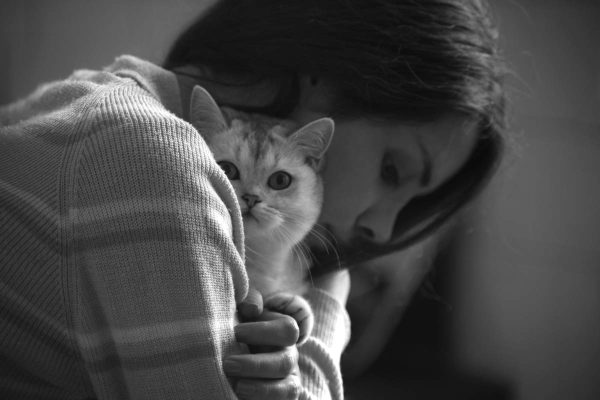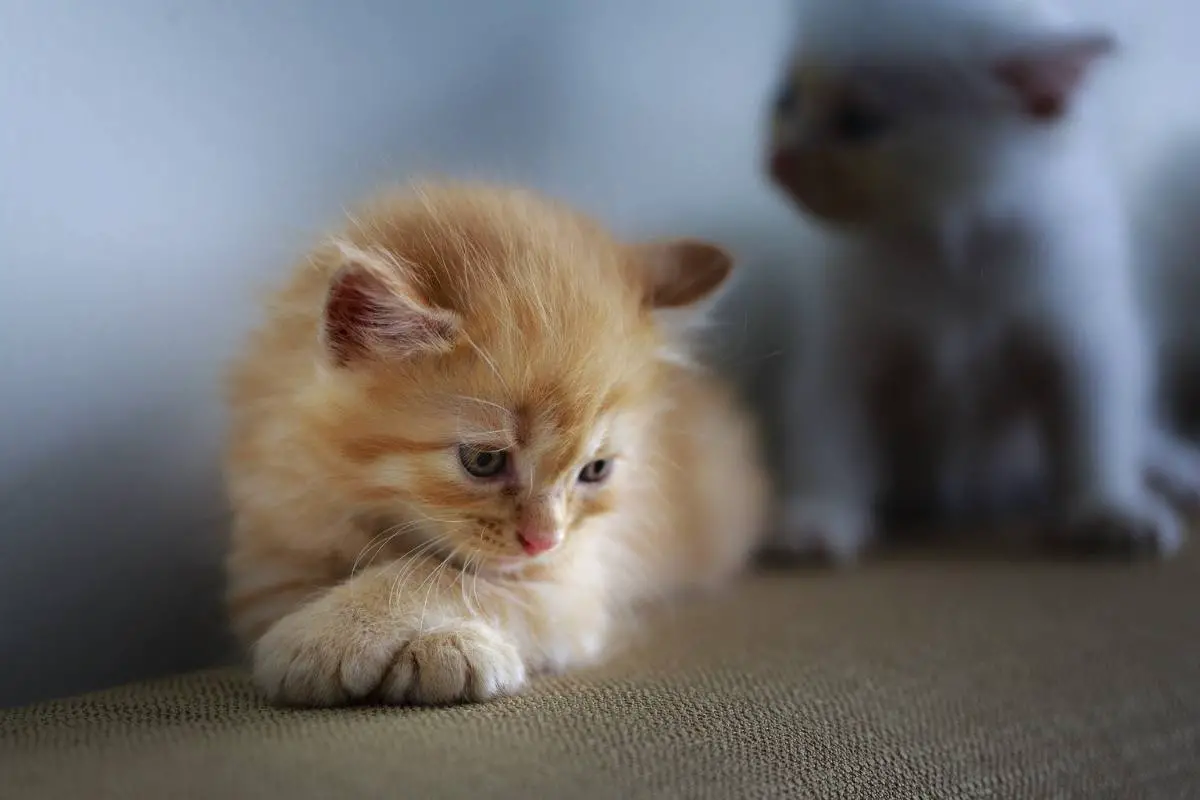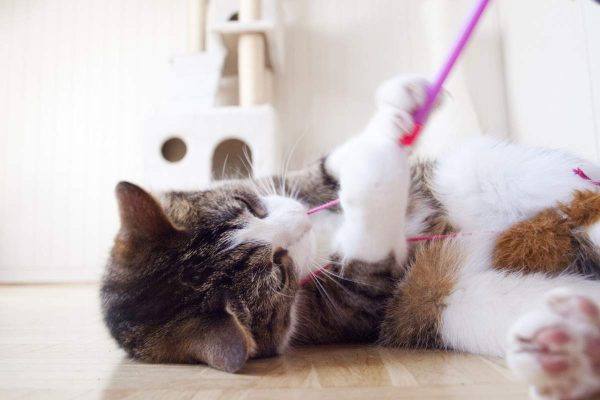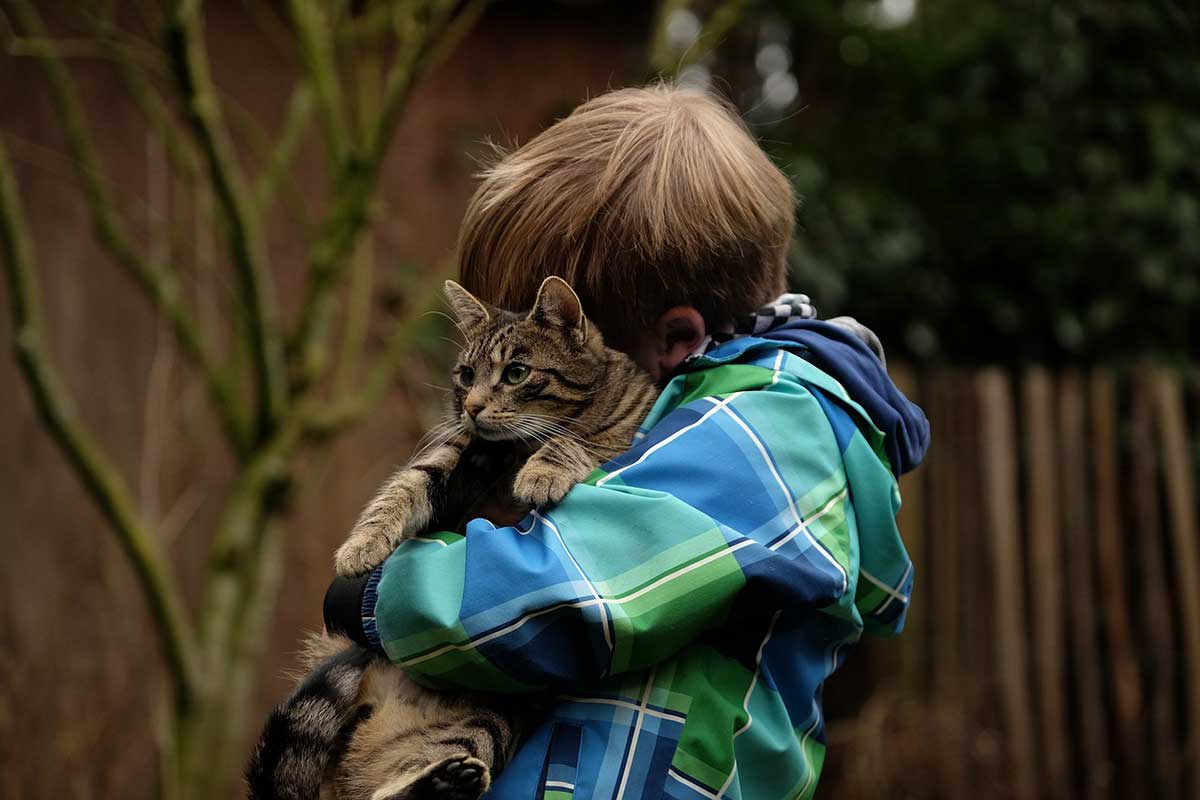Sometimes, it may seem like your cat is very aloof or distant from both you and others. There are tons of stories of cats purposely knocking cups of tables or sitting stubbornly on laptop keyboards— being ‘jerks’ on purpose. However, you may have noticed that your cat can also be remarkably sweet or sensitive when you or another friend or family member is upset.
So, why does my cat come to me when I cry? The simple answer is that your cat is in fact empathetic and can understand emotions like anger, sadness, and happiness– even in people. Because of this, they cuddle you in an attempt to make you feel better.
Cats, and other domesticated animals that we consider pets, are capable of reading your expressions and understanding them. Here you can learn more about cats and empathy, and further your understanding of what your cat sees when it sees you.
What is Empathy?

Empathy is most simply defined as the ability to understand fully what someone else is feeling. You can look at your friend who is really sad or really happy, and understand exactly what that feels like—and you can even feel that emotion in strangers when you see those feelings in their expressions.
You can feel embarrassment when others are embarrassed, anger when others are angry, and sadness when others are sad. This is because you yourself have experienced all those emotions and know what they feel like.
Empathy is a key part of most relationships, as it helps us navigate the world around us. Understanding others helps us be compassionate and kind. However, empathy is not exclusive to humans.
Many animals, both domestic and wild, are capable of empathy. However, domestic animals like cats and dogs are far better at reading and understanding human expressions and emotions than wild animals because historically, animals that are considered pets have spent far more time with humans, and have often been bred to be friendlier with people.
Animals and Empathy
Perhaps it is a little surprising to learn that even though animals are quite different from us, they are also capable of feeling sadness and joy, and recognizing it in others. Large animals like cows and horses often form important bonds of friendship that improve their lives and make them noticeably happier.
Smaller domesticated animals can also make significant emotional friendships, both inside their own species and out of it. In fact, you may even have a dog and a cat who genuinely enjoy each other’s company, even though they’re completely different animals.
This is a demonstration of inter-species empathy, and it can apply to you as well! You can probably tell what your pet is feeling. For example, you’ve seen your cat approach you with their tail straight up, purring or meowing, to rub against your leg. You know this means that your cat is happy to see you, and their happiness may even make you feel happy.
Why Cats Have a Bad Reputation
Now that you know that cats are capable of actively choosing to be kind, you may wonder why cats have a reputation of being grumpy or cold. This is because generally, cats are animals that are largely independent. Feral cats sometimes live in groups of queens, or female cats, and their kittens, but otherwise cats live, hunt, and prefer to be on their own.
This is part of why cats tend to do well as individual pets: they have their territory and their person, and most of the time, that’s all they need. However, this doesn’t mean that they cannot form friendships and bonds with other cats, or you.
Just because cats outward behavior suggests that they don’t like company doesn’t mean that that’s true. It just means that cats demonstrate affection or kindness in ways that are somewhat different than us and have different desires than we do. Cats are absolutely capable of friendship and empathy.
Cats and Sadness

Just like we can recognize happiness, we know what sadness in others looks like: a frowning face, folded arms, or even tears. Cats are also fully capable of feeling sadness, and they can grieve and become depressed just like we can—they even share some of the same signs of being sad that we have.
If your cat has begun eating less and sleeping more, has suddenly become quiet when it was previously a very “talky” cat, or if a more aloof cat is suddenly being very clingy and talkative, your cat may be depressed, or experiencing sadness.
If you have more than one cat, you may have even seen your cats interacting and comforting each other when one of them isn’t feeling well: cats will sometimes cuddle a depressed friend and purr to provide comfort, just like you might spend time with a friend who is unhappy.
Similarly, if you have just one cat who seems to be feeling low, giving your pet extra time and attention will likely help them feel better faster. Just like humans, cats value their friends’ company!
What This Means
Because your cat feels and understands sadness and can see sadness in other cats, your cat is capable of empathy. When your cat sees a companion acting out of sorts, it may seek to comfort their friend by giving them a cuddle or just curling up near them and purring.
Humans are surprisingly similar to cats in that we behave differently when we’re sad, whether it’s just being quieter, or more direct signs of unhappiness, such as crying.
Your cat has likely spent quite a bit of time with you, and has begun to recognize your habits and your personality, so when you act differently from your typical behavior, it will let your cat know that something is wrong.
Therefore, when your cat sees you upset, or crying, it will want to comfort you, and it will try to do so just how it would comfort any friend: by giving you a cuddle and spending time with you. This can be a huge comfort for anyone or anything who is sad!
Different Behavior
If you’re in the opposite scenario to what has been described in this article and your cat seems to avoid you when you’re down in the dumps, this is not your fault. This is simply an example of instinct on the part of your cat, and it doesn’t mean that your cat hates you. It just means that your cat is reverting to behavior that is often essential to survival in the wild.
Feral cats, when a member of their home group of cats is depressed or sick, will often avoid or abandon this individual because a cat that is diseased or moving slower is a risk to the other cats around it: their illness could be contagious, and their smell could draw larger predators to the others.
Your cat is leaving you alone because they are worried that you will no longer be able to protect it if something dangerous happens. This probably doesn’t help your mood but try not to take it personally: your cat has very little control over its instincts. Most likely, when you cheer up, your cat will come back like nothing happened.
How to Fix This

If you would like your cat to be friendlier toward you, it will take some time to adjust their behavior. Instinct is different from habit in that it is a core part of your cat as an animal, and it’s hard to change. However, paying close attention to your cat’s likes and dislikes can help you strengthen your cat’s trust in you.
For example, do they have a safe, clean environment to explore? Do they enjoy lots of play with you, not just on their own? Spending quality time with your cat and developing a steady schedule of activities with them throughout the day will help them feel less nervous when you’re not feeling your best, and may result in them wanting to spend more time with you, even when you’re sad.
Reinforcing the bond you have with your pet requires patience, but it is worth it in the long run.
Conclusion
Your cat cuddling with you when you’re sad can be a great comfort, and it’s absolutely meant to be. Your cat can feel and probably has felt sadness before, and it likely can see sadness in others, including you. This is demonstrated empathy, and many animals are capable of it.
By spending time with you, your cat is hoping that it will make you feel better sooner, because it cares for your wellbeing. Likewise, if your cat is feeling down and displaying symptoms of depression such as lethargy or loss of appetite, it can be very comforting for your pet to have you there with it and giving it extra attention.
Whether your cat likes to comfort you when you’re sad or prefers to keep its distance, it’s important to understand that your cat definitely can read your moods, just like you can often read how your cat is feeling through their expressions and behavior. This mutual understanding is the foundation for a good life for both you and your pet!

